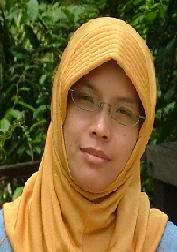HR as a Coach and Mentor
HR as a Coach and Mentor
Introduction
These days in corporate sector, everybody is talking about the role of HR professional as a coach and mentor. People are exited as well as confused. Exited, because it is new and it is challenging. Confused, because many are not aware of the difference between mentoring and coaching.
I got the inspiration to write this write-up from one such confused e-mail from one of my professional friend. I was describing my job profile to this friend of mine, wherein I mentioned that one of my role in present job is “Employee Coaching” to which he replied that what is coaching in layman’s language is “Mentoring” in corporate sector. It was a shock for me. In this article, I will be covering:
Differences and similarities in mentoring and coaching:
1. Role of HR as a Mentor and Coach
2. What they should do as a mentor and as a Coach
3. How to be an effective mentor and coach.
4. Basic definition of mentoring and Coaching
What Is Coaching?
To begin, coaching is a form of consulting, and is a new and rapidly growing profession, particularly, the area of personal development coaches. Coaches will identify strengths, weaknesses, goals, and needs, typically through a series of prearranged sessions over a month. In the words of Bentley, the four core elements of the coaching process are support, modeling, step-by-step development, and encouragement.
What is Mentoring?
The key to mentoring is to closely link it to the mission, goals, and priority strategies of the organisation. Only an integrated, facilitated process, which is linked, to current and future mission or business imperatives can be expected to stand the buffeting of the winds of change. Of course, mentoring must be monitored and tracked to measure its impact (Murray 1995).
You can read the complete article at:
http://ezinearticles.com/?id
Conclusion
Coaching and Mentoring are not the same thing. Our results and experience support the conclusion that mentoring is a power free, two-way mutually beneficial learning situation where the mentor provides advice, shares knowledge and experiences, and teaches using a low pressure, self-discovery approach. Teaching using an adult learning versus teacher to student model and, being willing to not just question for self discovery but also freely sharing their own experiences and skills with the protégé. The mentor is both a source of information/knowledge and a Socratic questioner. If I am your coach you probably work for my concern and me is your performance, ability to adapt to change, and enrolling you support in the vision/direction for our work unit.


0 Comments:
Enregistrer un commentaire
<< Home